7 Ways Human Actions Can Destroy Honey’s Medicinal Properties
During our travels around the world, we've met many beekeepers who were baffled when the Active Honey Test exhibited zero results. There’s no way to enhance the natural qualities of honey, there are many ways humans can spoil it, even unintentionally.
Bioactivity in honey refers to the activity of the preserved bee enzymes within it. Until recently, measuring the enzyme activity was possible only in a few laboratories worldwide, requiring a lot of time and money. As a result, few people conducted such test, allowing unscrupulous sellers to flood the market with "dead" honey. Dead honey isn't necessarily fake; it can also be honey ruined by improper processing and storage. While still sweet and delicious, suitable for cooking or as a pancake syrup, it loses its all medicinal properties.
Enzymes give honey its medicinal properties. Only a few insects and fungi can produce the unique enzyme glucose oxidase, which converts glucose into hydrogen peroxide, providing honey's antibacterial qualities. Honey is the only food product in nature that contains this enzyme in its natural state.
There are 7 ways to destroy honey's medicinal properties.

#1 Heating Honey
Enzymes, which are protein compounds, are highly sensitive to heat. Scientific research shows that a one-time, short-term heating of honey up to 55°C (131°F) hardly affects enzyme activity. Therefore, adding honey to warm milk or not-too-hot tea is perfectly acceptable. In fact, enzymes become more active in warm honey, so go ahead and enjoy your grandmother’s remedy of warm milk with honey for colds — it really does work (with enzyme-active honey and milk).
Honey sellers often claim they only heat honey up to a maximum of 40°C (104°F). But even if this is true, there are important details to consider. While a brief heating to 55°C can activate enzymes, prolonged or repeated heating deactivates them, as demonstrated by our laboratory experiments. Repetitive heating is what honey producers typically do? They store honey in large barrels and reheat it each time it crystallizes before transferring it to retail containers.
Conclusions
(a) Find out when honey is harvested in your area and buy it during that time to ensure it's fresh.
(b) Avoid buying honey out of season, as it likely has been reheated, possibly multiple times.
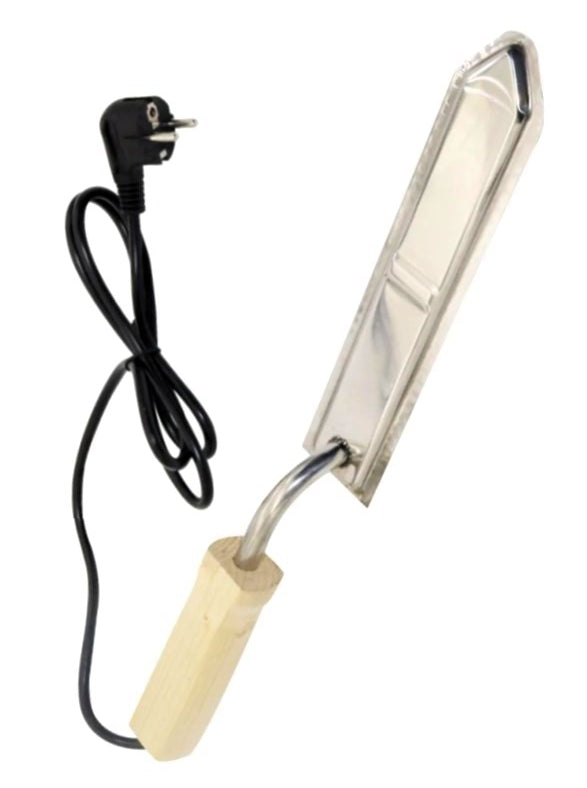
#2 Hot Knife
Bees seal honeycombs with wax when the honey is ready. To extract the honey, beekeepers cut off this wax layer from the filled honeycombs using a knife. This process is time-consuming and difficult, so large industrial beekeepers use a "hot knife." This knife, heated to a high temperature, cuts through the combs instantly but destroys the enzymes in the process.
Conclusions
(a) It's better to buy honey from a local beekeeper rather than from a supermarket or large-scale producer.
(b) Use the Active Honey Test to understand the enzyme activity level in the honey you purchase.
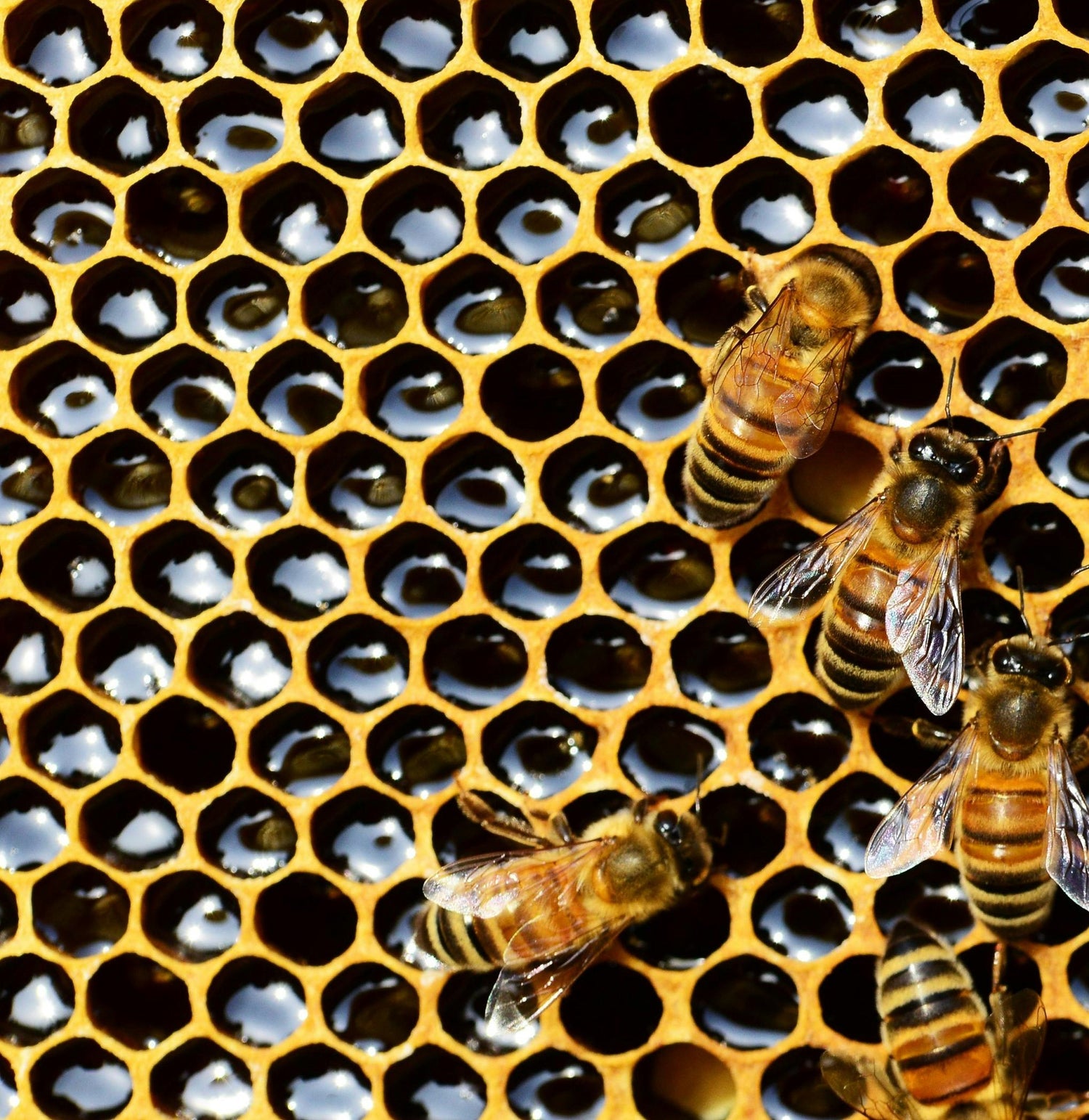
#3 Unripe Honey
Bees produce honey through a lengthy process. During ripening, they evaporate moisture from the nectar and add their enzymes. When the honey is ready, the bees seal it with wax. However, a beekeeper might not wait for this moment and extract unripe honey instead. This honey contains fewer bee enzymes, but the consumer would never know. And yes, it is fully legal to write on the label Raw and Natural.
Conclusion
Use the Active Honey Test to determine the activity of the key bee enzyme in honey, glucose oxidase.
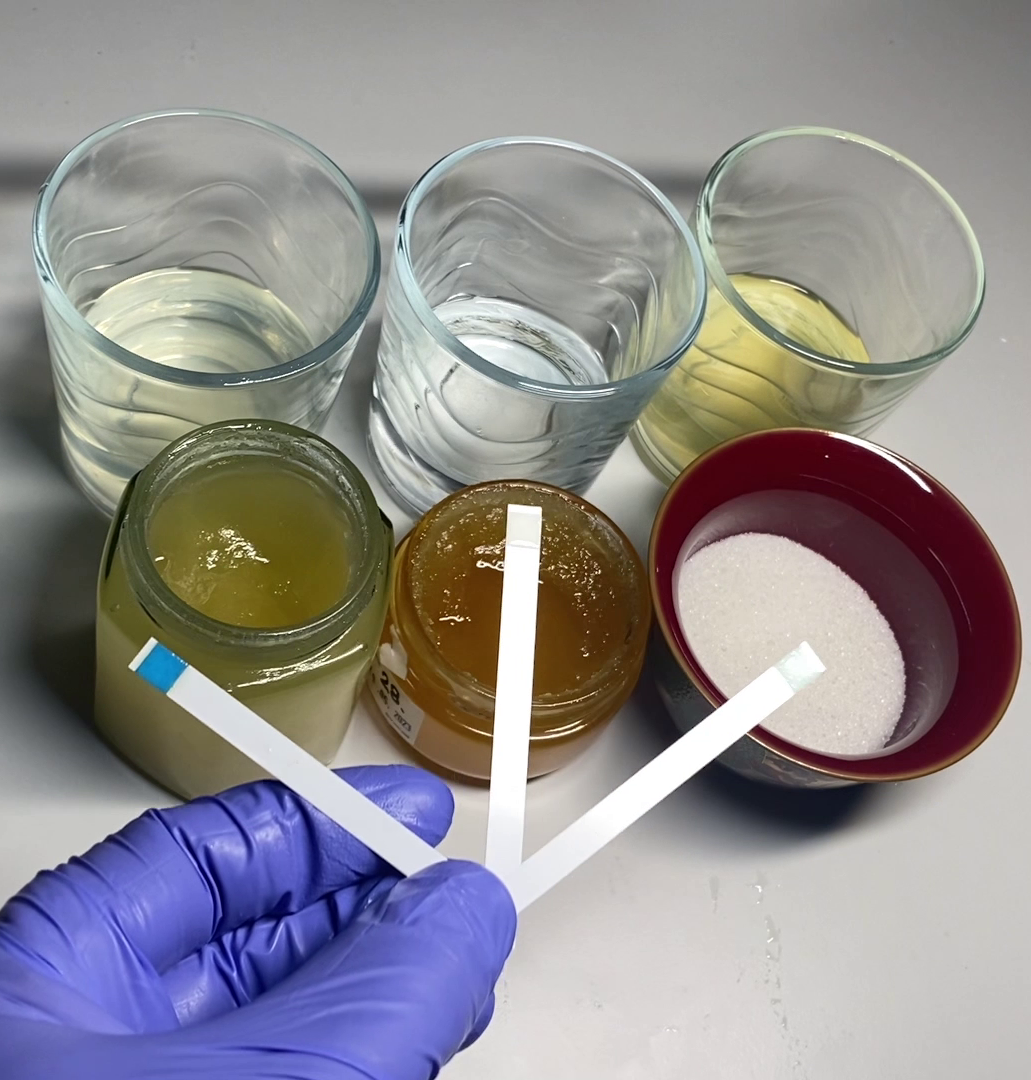
#4 Feeding Bees Sugar Syrup
Honey is a business. The more honey a beekeeper extracts, the higher the profit. However, bees make and store honey for their own sustenance, not for the beekeeper. When a beekeeper takes the honey, the bees might not have enough food, so most beekeepers feed their bees sugar syrup. Some beekeepers, driven by profit, excessively feed their bees sugar syrup. No analysis can detect if bees were fed sugar, but honey produced this way is weak, containing very few bee enzymes.
Conclusions
(a) Even honey in combs may contain weak enzymes.
(b) Use the Active Honey Test to assess the enzyme activity in honey.

#5 Light
Inside the hive, it's always dark. Bees seal honey in the combs with opaque wax. This sealed honey retains all its properties for years, like in a can. In the tombs of ancient Egypt, honey has been found that preserved its qualities! However, light destroys enzymes. Nearly all honey sold is packaged in glass jars and stored in them. Light easily penetrates transparent jars, gradually breaking down the enzymes. Honey can be packed in opaque plastic, but this carries health risks due to the interaction between the chemical compounds of the plastic and the acidic, bioactive environment of the honey. Glass remains the most inert and biologically safe material for food storage.
Conclusions
(a) Honey in supermarkets rarely retains its bioactivity because of light exposure.
(b) Store honey in glass jars in a dark place.
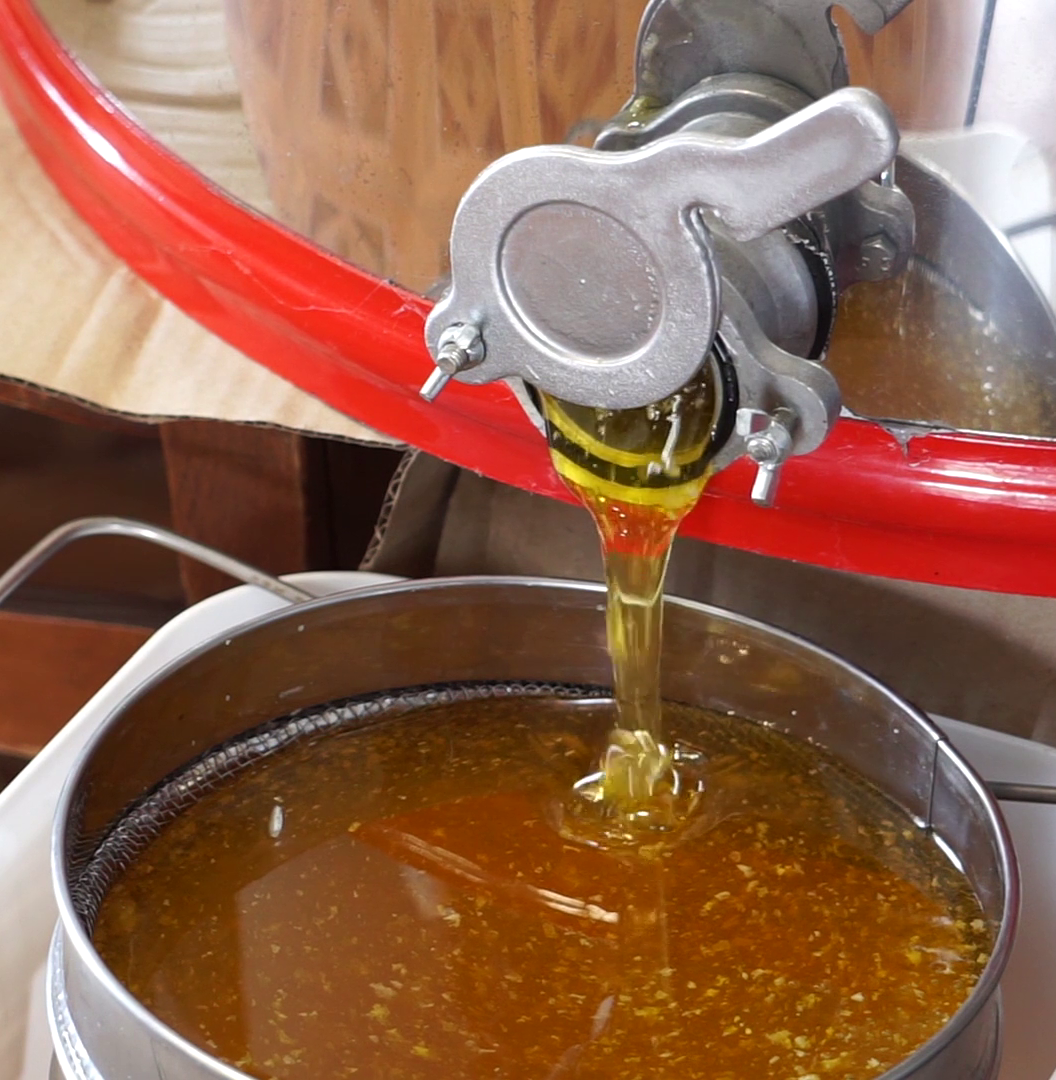
#6 The Contact with Metals during Honey Extraction and Storage
Bee enzymes interact not only with glucose but also with certain metals, such as iron and copper. Almost all honey is extracted from the combs using metal extractors. Even food-grade stainless steel contains many metal impurities that weaken bee enzymes. You can never be sure what type of metal was used to make the extractor. After extraction, the honey is stored. For storage, honey is poured into large metal barrels. Our ancestors made honey barrels from linden wood, but today these barrels are made of metal. In such barrels, enzymes react with the metal and weaken.
Conclusions
(a) Every detail in the process of extraction and storage influences medicinal properties of honey.
(b) Use the Active Honey Test to select the most bioactive honey if you are concerned about its medicinal properties
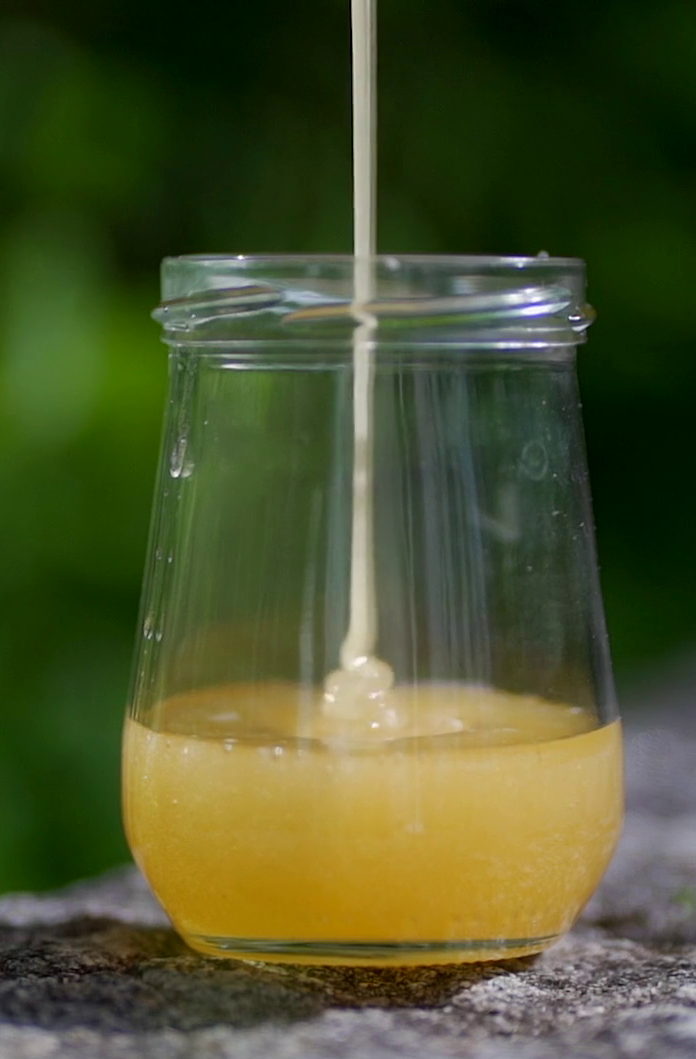
#7 Oxidation
During honey extraction, the honeycombs are spun in a centrifuge, and under the force of centrifugation, the honey flows out in a thin stream into the extractor. This thin stream oxidizes with oxygen, causing the honey to lose its medicinal properties.
Conclusions
(a) At any stage of extraction, processing, and storage, honey can be spoiled.
(b) Store honey in tightly sealed jars without access to air, in a dark place.
Don't settle for the beekeeper's "word of honor" or pretty labels. Ensure you're getting the best quality by using the Active Honey Test to verify your honey's bioactive properties.
Follow the guideline How to Choose Best Honey
